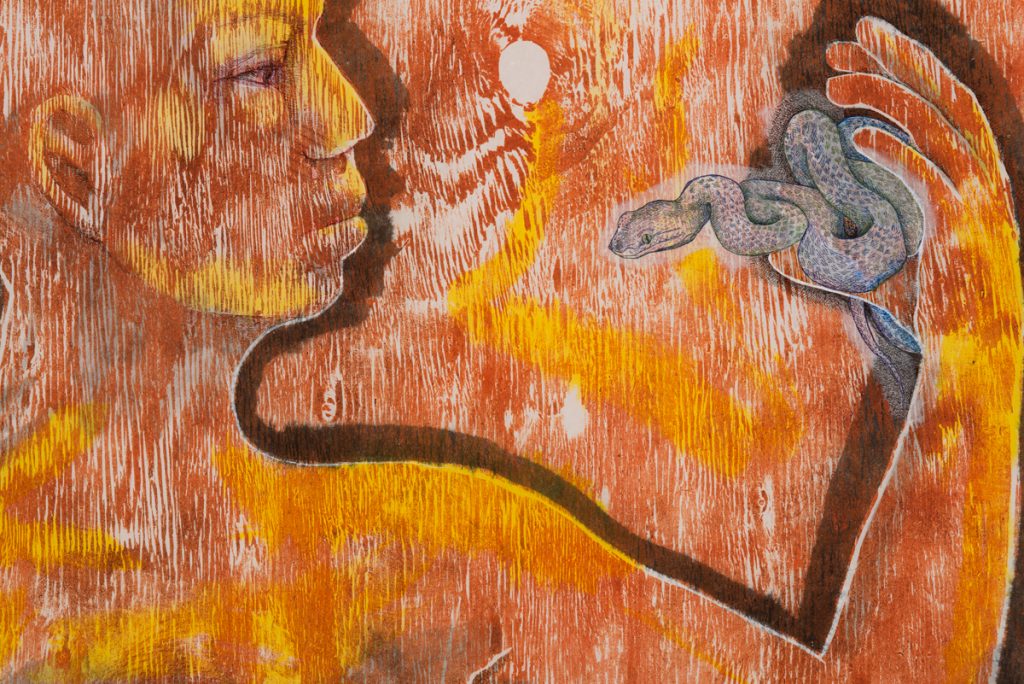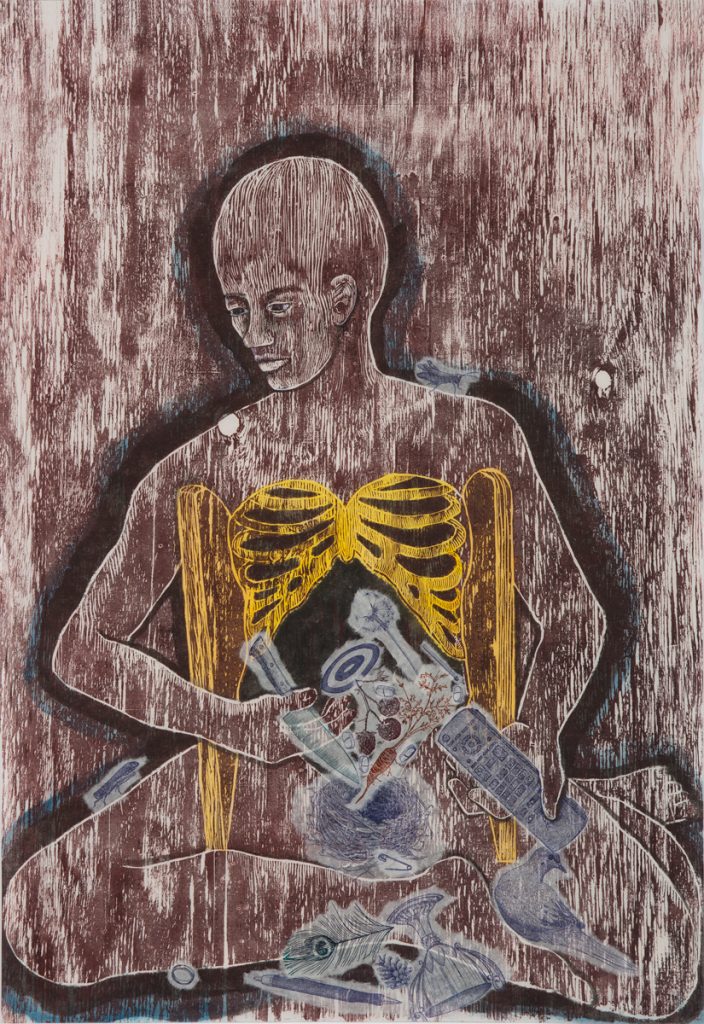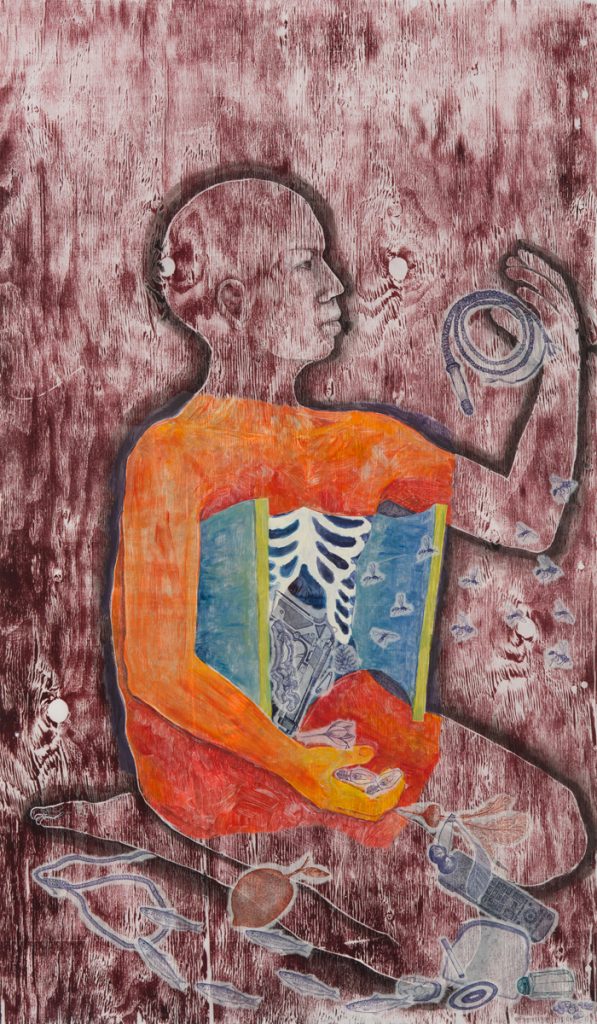
“The Snake Charmer”
“We must tell ourselves the truth about who we actually are—in all of our goodness and in all of our terribleness. When we avoid telling ourselves the truth we are prey to our shadows and are subject to our fears and we project onto others the terrible parts of our selves—our capacity to do untold harm—and find them, whomever the object of our projection is, to be less human, less than ourselves.”
Bill Denham, “Matthew [What is Justice?] IV: Compassion, a radical critique“
This week, Bill Denham’s fourth installment of his essay exploring justice was published on this site, in which he reflects through the lens of the murder of his stepson, Matthew, and the arrest ten years later of Matthew’s accused killers. The paragraph above from Denham’s writing jumps out to me. Last year, I completed a series of artwork entitled, “Opening the Door,” which features figures who have opened a door in their torsos. Symbolic objects spill out of them and are being examined by them. The objects represent both what is shameful and what is sacred, as, I felt through personal experiences, they both appeared to come out together. My thinking, in creating these works, was that with the doors to the inner self closed, these shameful and sacred pieces of our identities are projected onto others. With the doors open, the process of examining the contents begins. I can’t say as I know from experience what comes afterwards, but I imagine it may work like this:
You must open the door to your own self and unpack – unpack everything painful or shameful in which you were victim, perpetrator, or both. Unpack everything beautiful, and sacred that was always too much to hold. Look carefully at each piece that comes from within. Love it if you can, but if you can’t yet, at least get past hating it. Fear it if you must but at least look at it and recognize that you are afraid. Try, though you often fail, try every day to be daring enough to go about your business while holding your insides in your hands. Don’t stuff them back behind the doors. What flows through the empty space within you that is left behind will be far more sacred. When you can, set your pieces down and walk away, yes even the sacred things. When your hands are empty, you can use them for your truest work. Each piece you’ve walked away from will bring all of us closer to justice, and the real work your hands begin will bring us closer still.
When I consider what our country is experiencing right now with respect to racism, hate crimes, the justice system, and our policies towards other countries, when I consider the Catholic Church with respect to sexual abuse, abuse of power, and secrecy, and when I consider the #metoo movement and our society’s reckoning with sexual abuse, abuse of power, and secrecy, the knowledge that prompted me to write the paragraph above gives me hope. These are collective issues of justice facing our time, and the renowned psychologist Carl Jung taught that we have a collective subconscious and participate in collective identities. As we open the door, whether to our inner self, or our collective inner self, what is awful is exposed, as well as what is beautiful. If my understanding of the repressed shameful and the repressed sacred is true, however, something deeply holy, something free, something that connects us to each other through a deeper love will come of this. That is not to say, though, that it will be a short or easy path.
–– Kim Vanderheiden

“The Controller”

“The Breadwinner”

“The Driver”

“Mrs. Stone”